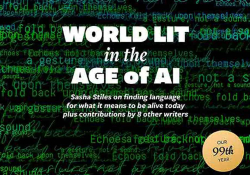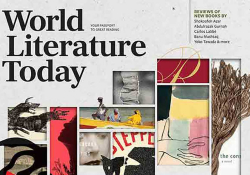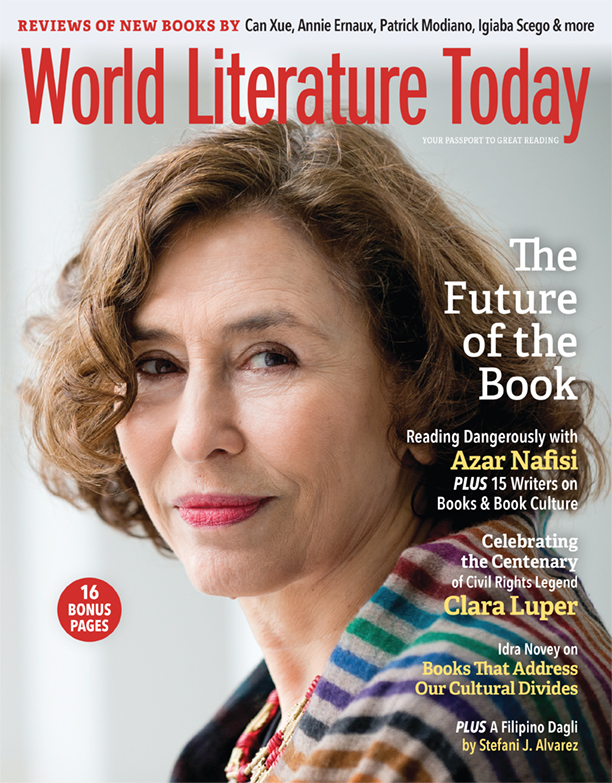A Republic of the Imagination: In Conversation with Azar Nafisi
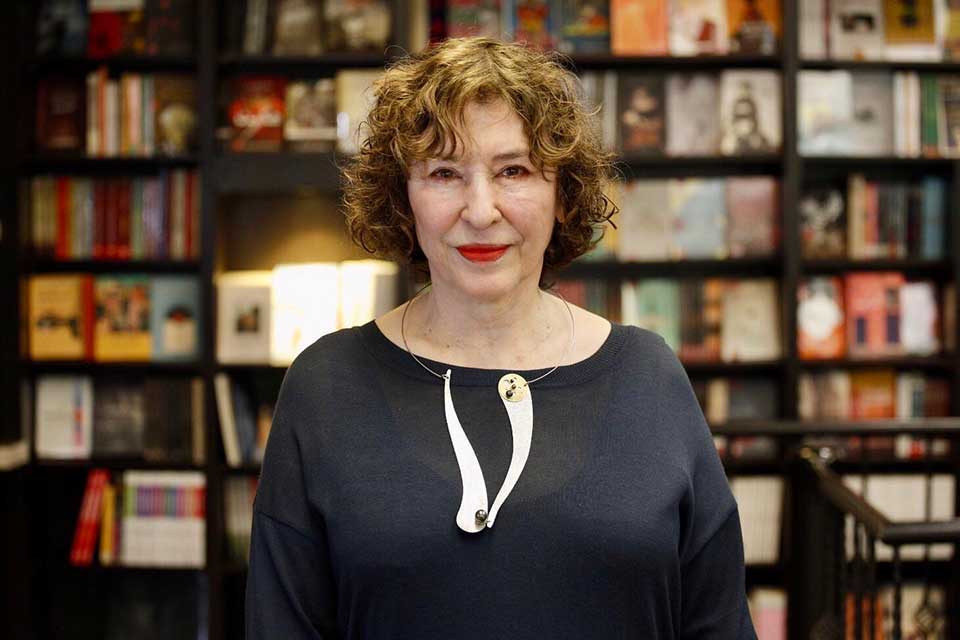
With her latest book of essays, Read Dangerously: The Subversive Power of Literature in Troubled Times (2022), Iranian American writer Azar Nafisi offers a “resistance reading list” that the Washington Post hails as offering “a new canon for the tyrannies of the present and the dystopian possibilities of the future.” Over Zoom, we discussed the power of storytelling embodied by Scheherazade and Alice in Wonderland; the intergenerational threads that connect readers; and the role of writers and readers in preserving memory and defending truth.
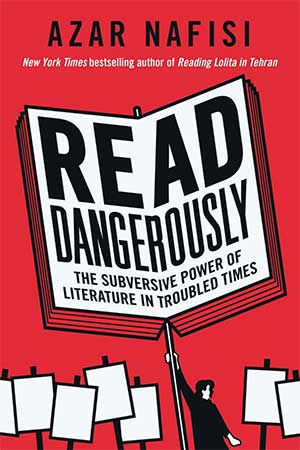 Daniel Simon: We’re talking today about your newest book, Read Dangerously, which I really love—thank you so much for writing it. I think it’s a perfect fit for the theme of our May issue, which is called “The Future of the Book.” And it’s an opportune moment to speak with you about your own passion for reading, writing, and books and how they’ve played such a large part in your life. In the epistolary genre consisting of letters to “Baba,” your late father, you write beautifully in Read Dangerously about the intergenerational thread that connects teachers and readers, such as your parents, Nezhat and Ahmad, to your own children and now your grandchildren; Professor James Yoch here at the University of Oklahoma and your student Razieh in Tehran; even your own reading of writers from Plato to James Baldwin, Toni Morrison, and Margaret Atwood during the 1970s and then again more recently as you are composing these letters. If a student in Norman or Tehran were to ask you what it means to read dangerously in 2023, what would you tell them?
Daniel Simon: We’re talking today about your newest book, Read Dangerously, which I really love—thank you so much for writing it. I think it’s a perfect fit for the theme of our May issue, which is called “The Future of the Book.” And it’s an opportune moment to speak with you about your own passion for reading, writing, and books and how they’ve played such a large part in your life. In the epistolary genre consisting of letters to “Baba,” your late father, you write beautifully in Read Dangerously about the intergenerational thread that connects teachers and readers, such as your parents, Nezhat and Ahmad, to your own children and now your grandchildren; Professor James Yoch here at the University of Oklahoma and your student Razieh in Tehran; even your own reading of writers from Plato to James Baldwin, Toni Morrison, and Margaret Atwood during the 1970s and then again more recently as you are composing these letters. If a student in Norman or Tehran were to ask you what it means to read dangerously in 2023, what would you tell them?
Azar Nafisi: Well, this book is partly a response to the trend I had noticed, especially in the US, where we use books as comfort food. We read them not in order to be disturbed or find something new, but we read them in order for them to confirm what we already know, at times to confirm our prejudices: “Why don’t they speak what I want them to?” So, there’s no challenge—we’re uncomfortable with challenge. We want to eliminate rather than create an exchange. And so, for me, reading dangerously means that we take that risk to read in order to be disturbed. As James Baldwin says, artists are here to disturb the peace. Writers are not here to warm the cockles of your heart.
For me, the best example of a good reader or a reader who takes risks is Alice in Wonderland. Out of millions of little girls, there’s this one little girl who is bored with the routine of her life, and she’s after something different. What makes Alice so exceptional is the fact that she has what Nabokov calls the third eye of the imagination. She sees not just reality in terms of appearances, but she also sees beyond reality, the magic of reality. And she sees not only a white rabbit but a white rabbit who talks and wears a waistcoat and a watch. She runs after that white rabbit, not saying, like some of our readers, that this is not how rabbits act. She risks going into the world of the white rabbit. And when she jumps into that hole, she doesn’t say, Am I going to survive this? What’s going to happen to me next? And her reward, of course, is the world—everything, every creature in that world, has a sign of being in her real life, but she’s now seeing them in a new light. Her vision of reality is changing as she goes from one person to another.
The last thing that I want to say about Alice, which I think is really important, is that like all good stories, it challenges and questions, not just the world outside but the reader as well. Alice has a lot of questions from these creatures, but every time she asks them about who they are or why are they like this, they ask the question of her, Who are you? Why do you look like this? You look strange. She tells the caterpillar, Who are you? And the caterpillar throws the question back to her, saying, Who are you? So, that is my concept of risking when we read. Writers take a risk when they write; the reader should also take a risk when they read.
What makes Alice so exceptional is the fact that she has what Nabokov calls the third eye of the imagination.
Simon: You write so beautifully about your father, his example of reading and writing dangerously, even when he was imprisoned. As an example for you, it sounds like that was quite an inspiration to create your own imaginations of alternate realities, and to encourage your students to do so as well.
Nafisi: Yes. My father, when he was in jail and he was in the prison library, he told me that he was not alone because he was surrounded by these books. And every time he opened a book, even a book that he disagreed with, he discovered something new.
Simon: That makes me think of what you say about David Grossman in the book as well: recognizing the enemy in the mirror. And in this time of great inhumanity, recognizing the humanity of someone who may be threatening your very survival. I think that’s so valuable to remember in these times.
I was also thinking about a conversation with Moniro Ravanipour that appeared in an issue of WLT called “Writing Beyond Iran” in 2015. She remarks, “[The extremists] don’t want any change, and the writer, by virtue of her craft, tries to change things, change minds and perceptions.” In the conclusion to Read Dangerously, you also write that “where lies masquerade as truth, we need the clear eyes of imagination to see the reality behind and beyond the show.” Is there a writer you’ve read recently who expresses this imagination most compellingly for you?
Nafisi: Well, there are so many writers, it’s very difficult to choose. I always say that I’m promiscuous when it comes to books. Recently, I have been trying to organize and rearrange my bookshelves because every time I write a book, every room becomes filled with books and with notes. And then I have to go and find a place for them.
As I was doing that, I came across a book in Persian, actually, but it’s been translated into English, The 1,001 Nights stories. I’d like to talk about that frame story because I think it is the mother of all stories. When we talk about imagination and the healing role that imagination plays in our lives, we can go back to Scheherazade and The 1,001 Nights. If you remember the story, there’s this king who actually is a just king, but he discovers his queen making love to a slave and goes nuts. And without hearing the queen and the slave’s side of the story, he kills them. From then on, he decides because she was unfaithful, all women are unfaithful. So, every night he marries a virgin, and at dawn he kills her before she can betray him.
Then comes Scheherazade. Of course, all these heroines are beautiful, but Scheherazade is known not for her beauty but for her wisdom. And that makes a difference—wisdom as an attraction. She decides that she is going to save the virgins and herself. Now, the first thing that comes to one’s mind is taking a weapon to bed and killing him. What have you got to lose if he’s going to kill you? You kill him. But that is the whole idea behind imagination: you don’t do what your enemy does, you don’t go into their domain. You’re probably not good in their domain anyway. So, every night she tells a story to her sister as the king is listening, and she leaves it unfinished so that the next morning, the king wants to know more. And that’s another thing about imagination: it arouses our curiosity. We want to know, we want to go to places we have not been, meet people we have not seen.
Anyway, to make a long story short, she tells him stories for 1,001 nights. During this time, he changes because two things happen to him. One is the curiosity, wanting to know about others and discovering that not all queens are betrayers and not all kings are just. The second thing that happens to him is that he finds empathy. And fiction, storytelling, is the bearer, the carrier of empathy. We all talk about difference, but the shock of recognition that we all share a common humanity is very important. Scheherazade heals the king rather than killing the king. I think that this is a great description of what imagination does to us or should do to us.
Simon: Thank you so much for that lovely response, which makes me think of the oral tradition of storytelling—you write that where there are stories, there is hope and, ultimately, love. In a world where Rumi and Shakespeare exist, there must be hope, right?
Nafisi: Yes.
Simon: My next question is more about contemporary events in Iran related to the recent protests. As you know, of course, Iranian security forces brutally cracked down on the protests that erupted after the death of Mahsa Amini in September 2022. What news have you heard from your friend whom you call Shirin in the book? How is she doing?
Nafisi: You know, the first few weeks of the uprising, I was desperately trying to get in touch with her, and I couldn’t—the government had blocked all communication, and I was going crazy because I couldn’t get in touch with anyone. Finally, through WhatsApp, we connected. And right now, we connect mainly through WhatsApp; she sends me videos and documents and tells me what is happening. But the first time I talked to her, I noticed that both of us—I, living in Washington, DC, and she living in Tehran—had the same reaction toward the uprising. On one hand, it was a feeling of anger and outrage and, she told me, frustration, that she could not prevent this violence: shooting into their peaceful demonstrations, targeting people’s eyes, making them go blind. But the difference between this one, Shirin said, and the feelings she had during protests in other years before this, was that in those other protests, it all ended in people going home, finally. But, she said, now the Iranian people are done with reform. They don’t think that this regime is capable of change, and they don’t see any future. So, they are fighting for their lives. There is nowhere else to go but to fight, to challenge.
She said something, which I actually mention in Read Dangerously, where every time we talked, she would complain about the Western media and how they give so much space to the regime and its apologists, and they don’t show the people of Iran. She said, with a sort of glee in her voice, “We did it! Now they are listening to our songs, giving prizes to our songs.” This uprising, she told me, did something that felt akin to a miracle: connecting us to the world, allowing the world to come into that part of Iran which was forbidden before. So, I have a lot of fear for her and for those who are in Iran—I almost feel that fear runs in my veins, like blood. But each time I talk to her, I also have a lot of hope. I agree with her, that we’re not going to go back.
Simon: It really does sound like there has been a sea change in the aspirations of everyday Iranian people that this may end, this must end. So that’s hopeful.
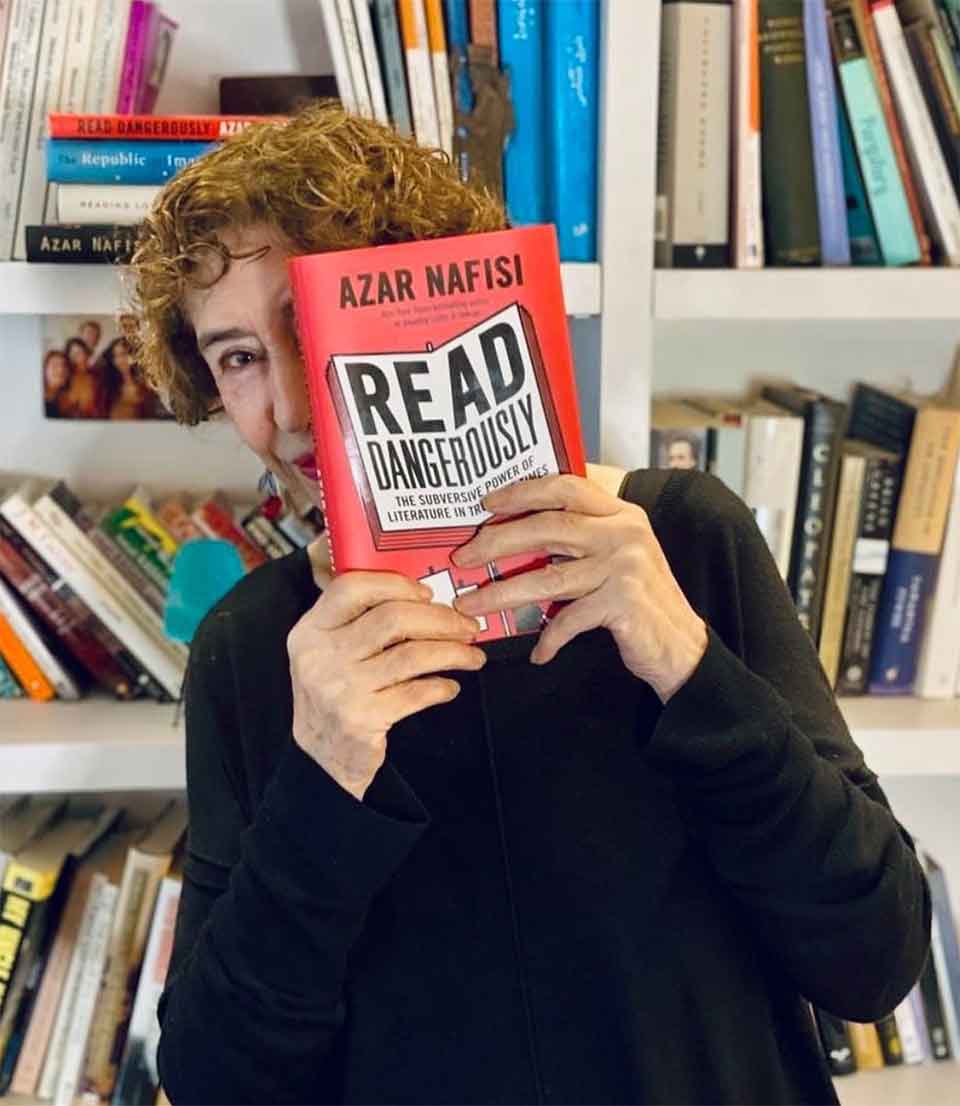
Iranian women have discovered their power: They’re not afraid anymore.
Nafisi: Iranian people, especially the women, have discovered their power. They’re not afraid anymore. You see, the roles have changed: it’s the regime that is afraid. And this violence doesn’t come out of strength; it comes out of weakness, because they have nothing else in their arsenal except violence, which doesn’t work, which makes people more resolute.
Simon: In a recent interview with Mary Louise Kelley that aired on NPR, the Iranian foreign minister, Hossein Amir-Abdollahian, blamed the recent protesters for committing acts of violence, supported by arms from the US and Israel (February 9, 2023). Such hypocrisy seems to be one of the oldest tactics in the regime’s playbook. When thinking about the future of Iran, however, what else gives you hope? Are there other things that you find hopeful, despite this entrenched mentality?
Nafisi: I’m glad you brought up this person’s interview with NPR because totalitarianism feeds on lies. I mean, it doesn’t only feed on lies, it lives on lies, it can’t survive without lies. And that is why we need imagination even more, because imagination is in search of truth. And truth, once you know it, you cannot remain silent. If you remain silent, you would become complicit in the crimes that are being committed, even against you.
Let me first clarify the way I define hope. Václav Havel says that hope is definitely not optimism, it is not the conviction that something good will come out, that there will be a reward for what we do. It is the certainty that what we do makes sense, has meaning, no matter what the reward. I believe that is the kind of hope that the Iranian people have reached. They are fighting for their existence. And that is why the slogan, Woman, Life, Liberty, is so different from any political slogan. The reason for this is that for Iranian women and Iranian people as a whole, this struggle is not political or is not only political, it is existential. I remember the way I felt when I was first expelled from the University of Tehran for refusing to wear the veil. I didn’t wear my veil properly, not because I wanted to stand up to them politically but because my existence was in danger. If you do as they tell you, you are changed; for all practical purposes, it is sort of like a death.
So, you’re fighting for your life. Life becomes synonymous with liberty, and that is why we fight. For women, it became a matter of pride, a matter of dignity. If I, as a woman, as a writer, as a reader, as a teacher, as just a person, cannot be or feel or express who I am and how I am, then there’s something wrong. Then there is an assault on my integrity as a human being. So, we are fighting for our humanity. And that is why I have hope, because we are fighting for life. And there is a great deal of hope, not just for your own, but for the world.
For Iranian people as a whole, this struggle is not political or is not only political, it is existential.
Simon: That’s so beautifully said. As you say in the book, freedom is not just a Western construct. You write that it’s a universal human right as well as an aspiration, not something the West has a special privilege to in terms of being able to express. The example of Iranian women and young women protesting about the hijab means so much more, as you say, in terms of dignity and survival.
Nafisi: Could I just say something? What you were saying reminded me of when at the very beginning of the 1979 revolution, Khomeini gave a fatwa for women to wear the compulsory hijab, and tens of thousands of Iranian women came into the streets, challenging him, and he had to take it back. At that time, they were attacked with scissors, and acid was thrown into their faces, but their main slogan speaks to what you were just saying. Their main slogan was freedom is neither Western nor Eastern, freedom is global. When you were talking about it, I kept thinking about that slogan and how true that is.
Simon: That’s a wonderful perspective, historically, as well as on the most recent protests. I have a final question about the future readers that you talk about in your book. You quote Margaret Atwood, who writes that “every recorded story implies a future reader,” and “readers become keepers of memory, keepers of truth.” In the context of this issue’s focus on “The Future of the Book,” what memories and what truths do you hope future readers will take away from your body of work?
Imagination goes far beyond just totalitarianism and democracy. It addresses our humanity, against any kind of absolutism, including the absolutism of death.
Nafisi: I think there are three points that I would like to make. One is the fact that the imagination transcends all the limitations that reality puts in front of us or imposes on us. Imagination transcends the limitations of nationality, language, race, gender, ethnicity, religion. And it creates what I call a republic of imagination in which all of us live. Because we’re passionate about life and we’re passionate about imagination.
The second thing relates to Atwood and readers as keepers of memory. That reminds me of Tzvetan Todorov, the eastern European thinker. He said, “Only total oblivion calls for total despair.” Imagination goes far beyond just totalitarianism and democracy. It addresses our humanity, against any kind of absolutism, including the absolutism of death. We have our memory, we have what Nabokov calls conclusive evidence that we have lived. That is how we stand up to whatever is transient, to whatever appears to us as absolute. That is why memory is so important because it addresses our humanity.
The last thing I want to say is that Saul Bellow, in talking about totalitarian regimes and democratic ones, writes that totalitarian regimes like the Soviet Union are very obvious. I mean, Stalin pours on death, and we know about this naked violence. But in democracies, we don’t kill our opponents or put them in jail—or just ban their books, as we’re doing right now—what threatens us is our sleeping consciousness and our atrophy of feeling. That is what worries me today. What imagination does, it awakens our senses, it awakens our consciousness. What fiction does, it celebrates life, with all its pain and joy, and makes us alive, simply alive.
So, I want to involve the reader. I want to tell the reader that you’re not just a passive observer. Once you read the book, you are responsible. I want to end with a quotation from Nabokov, which I use in Read Dangerously. He says, “Readers are born free, and they ought to remain free.” What we should remember is that you fight for that freedom. Otherwise, they come and burn your books or ban your books. Even in a democracy.
Simon: Which goes back to Plato and the noble lie versus the subversive truth of the poet, who sees beyond the shadows on the wall of the cave and claims that freedom and life.
Nafisi: That is very true, very true.
Simon: Thank you so much, Azar, this has been a real pleasure. It’s been lovely spending this time together.
Nafisi: Thank you.
March 17, 2023

An Excerpt from Read Dangerously
by Azar Nafisi
“I first read The Republic during my junior year at the University of Oklahoma. Baba jan, I just have to tell you this: almost every time I tell someone here that I went to the University of Oklahoma, they say, ‘How on earth did you find Oklahoma? An Iranian girl studying English literature at the University of Oklahoma?!’ I tell them I got married to someone who went to that university. I was the only foreigner in the Department of English, and I thoroughly enjoyed my classes. And, by the way, I also discovered the beauty of fireflies and red earth. Many are surprised when I tell them how liberal OU was at the time, with its students participating in all sorts of protests, including the antiwar movement. We even took over the administration building. Anyway, I first read Plato in a seminar with Professor James Yoch called ‘Backgrounds to Renaissance.’”
—Azar Nafisi, Read Dangerously: The Subversive Power of Literature in Troubled Times (Dey St., 2022) / Copyright © 2022 by the author
Azar Nafisi is the critically acclaimed author of Reading Lolita in Tehran, a number-one New York Times bestseller published in thirty-two languages, and Things I’ve Been Silent About, also a New York Times bestseller. Her other books include The Republic of Imagination, Reading Lolita in Tehran, and That Other World: Nabokov and the Puzzle of Exile. She has taught at Oxford University, Johns Hopkins University, and several universities in Tehran.




